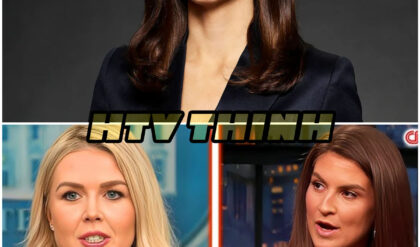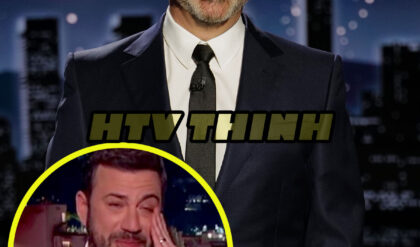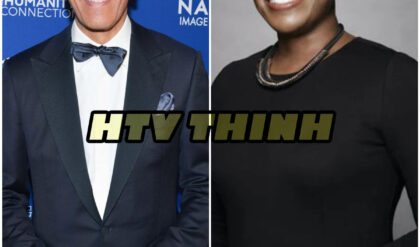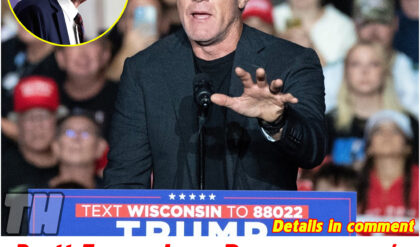Karoline Leavitt Clashes with CNN’s Kaitlan Collins in Heated Exchange Over Media Transparency
In a fiery confrontation during a recent White House press briefing, Karoline Leavitt sharply challenged CNN’s Chief White House Correspondent Kaitlan Collins, accusing the journalist of deliberately misrepresenting facts to the American public.
The heated exchange quickly went viral, reigniting a polarized debate on media bias, transparency, and accountability.
The tense interaction began when Collins confronted Leavitt over the administration’s decision to restrict an Associated Press reporter from attending an event held in the Oval Office.
Collins argued that excluding reporters from significant events undermines transparency, a foundational pillar of democracy and open government.
Leavitt responded forcefully, asserting the administration’s right to determine press access based on their judgment and criteria.
“We reserve the right to decide who gets to go into the Oval Office,” Leavitt said. Her remark drew immediate criticism from media observers who saw it as an alarming stance, potentially eroding principles of press freedom and openness.
The debate intensified further when Collins challenged Leavitt regarding her recent use of the phrase “Gulf of America,” a term unfamiliar and seemingly inaccurate to many.
Collins sought clarification, suggesting the phrase may confuse the public or distort geographical accuracy. Leavitt, standing firm, reiterated, “The ‘Gulf of America’ is a fact,” though no further explanation was provided, leaving journalists puzzled and sparking widespread discussions about accuracy and truthfulness in official communications.
Further fueling tensions, Collins pressed Leavitt on recent Department of Justice (DOJ) firings, particularly the abrupt dismissal of several inspectors general.
These positions, traditionally insulated from political interference, play a critical role in maintaining transparency and ethical oversight within government agencies.

Leavitt justified the administration’s actions as routine administrative decisions, brushing aside Collins’ concerns over potential ethical implications or legality.
“The President has the full authority to make personnel changes,” Leavitt explained, dismissing criticisms as unfounded and politically motivated.
One particularly contentious moment came as Collins questioned National Security Advisor Mike Waltz regarding President Trump’s controversial assertion about Ukraine instigating the war with Russia. Leavitt swiftly intervened, interrupting Collins and effectively halting the line of inquiry.
This moment was met with immediate backlash from fellow journalists and media watchdogs, who criticized Leavitt for obstructing transparency and accountability.
Social media erupted following the exchange, with clips titled “Karoline Leavitt DESTROYS Woke CNN’s Kaitlan Collins for LYING on LIVE TV” circulating widely, underscoring the deeply divided perspectives on media coverage and political narratives.

Supporters of the administration praised Leavitt’s assertiveness, applauding her direct approach in confronting perceived media biases.
Conversely, critics viewed her actions as symptomatic of an alarming erosion of press freedoms, emphasizing the essential role journalism plays in holding power accountable.
Media analysts have expressed growing concern that such confrontational interactions could represent a broader shift toward limiting press access and curbing critical reporting.
Freedom of the press advocates have stressed the risks of permitting governmental authorities to selectively grant media access based on favorable coverage, warning that such practices could significantly impair democratic processes and informed public debate.
In the broader context, this incident highlights a critical juncture in the ongoing struggle between media organizations striving for transparency and governmental administrations determined to control narratives.
It underscores the necessity for vigilance and robust journalistic independence to safeguard democratic principles and public awareness.
Moving forward, the relationship between media representatives and government officials remains complex and challenging. Both sides face the task of navigating increasingly polarized public opinion while maintaining commitments to transparency, accuracy, and accountability.
The tense confrontation between Karoline Leavitt and Kaitlan Collins illustrates not only a personal clash but a significant reflection of deeper societal divisions over the role and responsibilities of journalism in America today.
News
Jimmy Kimmel sent 8 mysterious words that made Joy Reid “chill” right after losing her job at MSNBC! (N)
Jimmy Kimmel Sends 8 Mysterious Words That Gave Joy Reid Chills Right After Losing MSNBC Job It was an ordinary Tuesday evening when Joy Reid, celebrated journalist and host of MSNBC’s “The ReidOut,” received news that her show would not…
Revealing the dark secret that makes Jimmy Kimmel want to disappear from television? (N)
As Jimmy Kimmel gears up for his fourth round of hosting the Academy Awards, he’s dropping hints that his role as the face of “Jimmy Kimmel Live!” might be reaching its twilight. Speaking exclusively to the Los Angeles Times, the…
“Primetime Earthquake: The Secret Behind the Massive Reshuffle at MSNBC and NBC” (N)
Two major scandals at MSNBC and NBC have dramatically reshaped the landscape of primetime television, marking a definitive end of an era for the once-dominant media network. The fallout, both financial and reputational, has set industry insiders and viewers abuzz,…
Mel Gibson Exposes Oprah’s “Secret Conspiracy” That Shakes Hollywood (N)
Hollywood Uncovered: Mel Gibson Exposes Industry Secrets Through ‘Sound of Freedom’ In recent weeks, Hollywood has found itself under intense scrutiny following shocking revelations and controversies stemming from the release of the film “Sound of Freedom,” prominently linked to renowned…
Impacto en ‘TardeAR’ por lo sucedido con Lolita Flores y Cristina Tárrega: ‘Eres una…’ (N)
En el programa ‘TardeAR’ se ha vivido una tarde de sorpresas tras lo ocurrido entre Lolita Flores y Cristina Tárrega El programa TardeAR ha vivido una de sus tardes más sorprendentes. Todo ha comenzado con un tema que prometía ser ligero y…
A Los 81 años, ENRIQUE GUZMÁN Está Muy Mal Del Corazon Y Cómo Vive Es Lastimosamente Triste (N)
A los 81 años, ENRIQUE GUZMÁN está muy mal del corazón y cómo vive es lastimosamente triste Enrique Guzmán, una de las figuras más queridas y emblemáticas de la música en español, atraviesa una de las etapas más difíciles de…
End of content
No more pages to load












